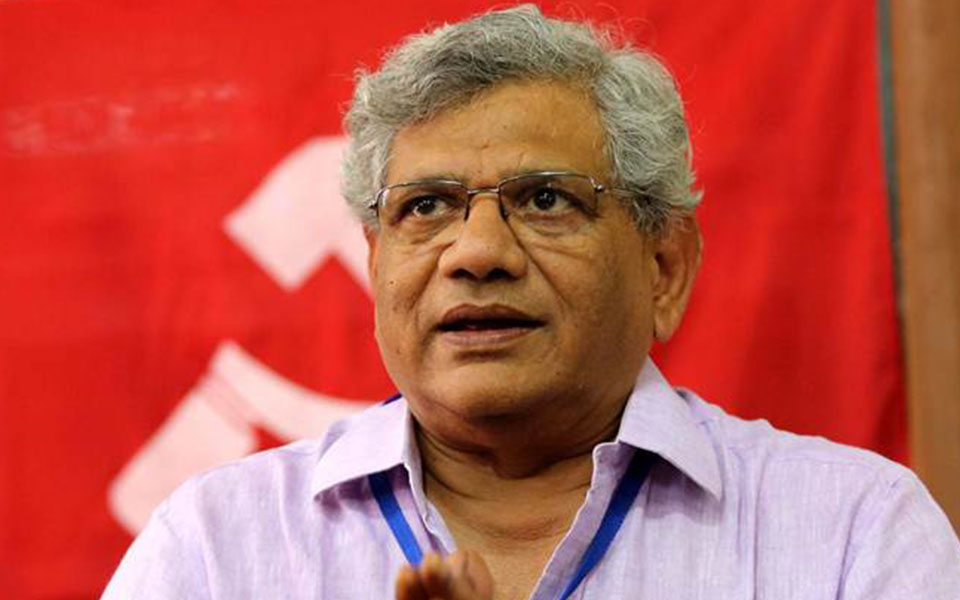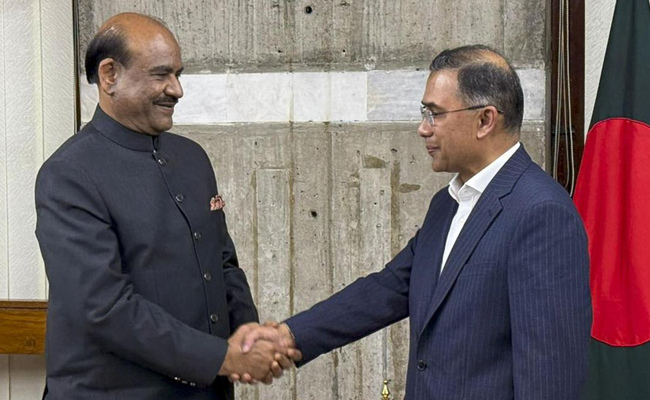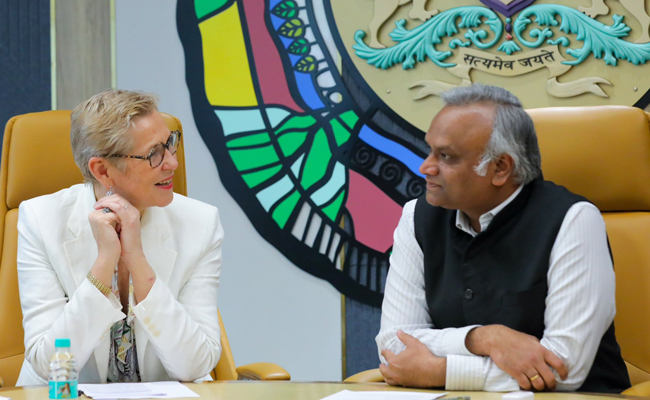Hyderabad, April 22: The CPI-M on Sunday unanimously re-elected Sitaram Yechury as its General Secretary for another three years and he pledged to take steps to oust the government of Prime Minister Narendra Modi.
Yechury's re-election took place on the last day of the party's 22nd Congress here, Communist Party of India-Marxist leader and former Tripura Chief Minister Manik Sarkar announced.
Sarkar said Yechury, 65, was elected by a 95-member new Central Committee, which also elected a 17-member new Politburo.
"Yechury's election was unanimous. There was no contest," Sarkar told IANS.
Yechury, who has been a member of the CPI-M since 1974 when he joined its student wing, was first elected the CPI-M General Secretary in 2015.
Born in Chennai, Yechury was educated in Delhi's Jawaharlal Nehru University, a city where he has spent most of his life.
Re-elected to the top post a year ahead of the general elections, Yechury said the CPI-M's first goal was to oust the BJP-RSS Modi government.
In his address to the party delegates from across the country, he assured them that he would try to fulfil the immense responsibility of this office to the best of his capability.
The five-day conclave saw the groups led by Yechury and former General Secretary Prakash Karat agreeing to amendments in the draft political resolution.
The resolution, while ruling out a political alliance with the Congress party, made it clear that it was ready for an understanding with that party. It reiterated that its first and foremost goal was to defeat the Bharatiya Janata Party.
The CPI-M, the largest party of the Left, has faced electoral reverses in West Bengal and more recently in Tripura. It is now in power in only Kerala.
Let the Truth be known. If you read VB and like VB, please be a VB Supporter and Help us deliver the Truth to one and all.
New Delhi (PTI): Lok Sabha Speaker Om Birla on Tuesday attended the swearing-in ceremony of new Bangladesh Prime Minister Tarique Rahman in Dhaka, and said India stands ready to support Bangladesh's endeavours to build a democratic, progressive and inclusive nation.
Separately, the speaker called on the new Bangladesh prime minister and conveyed the wishes of Prime Minister Narendra Modi.
He also handed over an invitation from Prime Minister Modi to Rahman to visit India, officials said here.
“Glad to attend the swearing-in ceremony of the new government of Bangladesh led by Prime Minister Tarique Rahman in Dhaka today. India stands ready to support Bangladesh’s endeavours to build a democratic, progressive and inclusive nation,” Birla posted on X.
Bangladesh High Commissioner to India, Riaz Hamidullah, said in a post on X, “Prime Minister Tarique Rahman conveys his greetings to India and PM Narendra Modi to the visiting India Lok Sabha Speaker Om Birla at a courtesy meet following the swearing-in of the new government.
“Speaker Birla conveyed wishes and an invitation to India. Both leaders expressed optimism to work together for the well-being of the people of Bangladesh and India, pursuing a people-centric menu of cooperation.”
Birla also met Maldives President Mohamed Muizzu, Bhutan Prime Minister Tshering Tobgay and other leaders on the sidelines of the event.
Led by Rahman, the Bangladesh Nationalist Party (BNP) swept to power with a two-thirds majority with 49.97 per cent votes and 209 seats in the polls held on February 12, results for which were declared on February 13.
The Jamaat-e-Islami, which was opposed to Bangladesh's independence from Pakistan in 1971, registered its best-ever performance with 31.76 per cent votes and 68 seats.
The National Citizen Party (NCP) secured the third-highest number of seats, six, and 3.05 per cent votes.
Bangladesh had invited Narendra Modi to the ceremony, but the prime minister could not attend the event as he was scheduled to hold talks with French President Emmanuel Macron in Mumbai on Tuesday.
On reaching Dhaka, Birla said the swearing-in of Rahman was an important moment that would strengthen people-to-people relations and shared democratic values between the two neighbours.
“Honoured to be in Dhaka representing India at the swearing-in ceremony of the new government led by Tarique Rahman as the prime minister. It's an important moment that will strengthen people-to-people ties and shared democratic values between our two nations,” Birla said.
Birla was accompanied by Foreign Secretary Vikram Misri and other officials.





